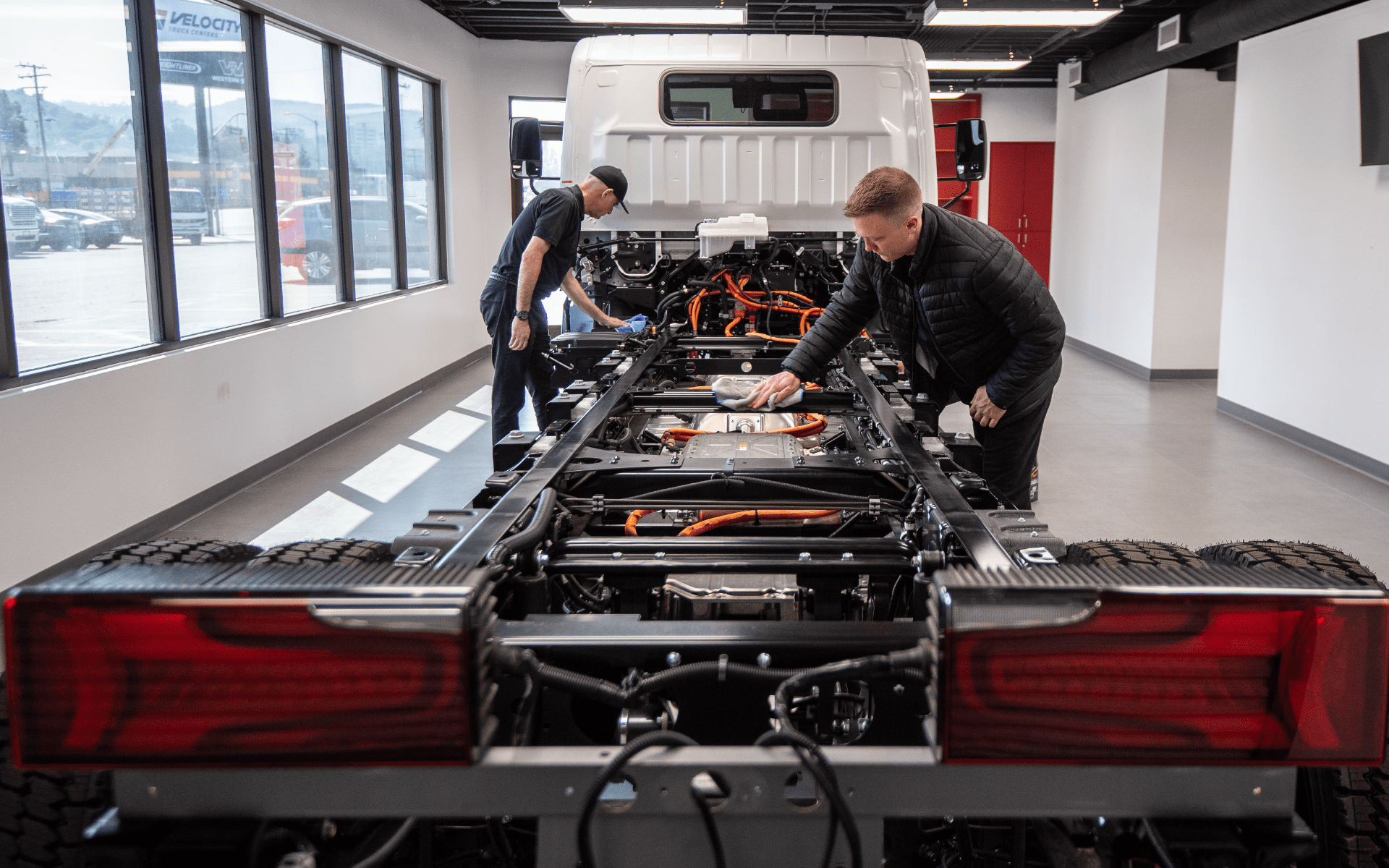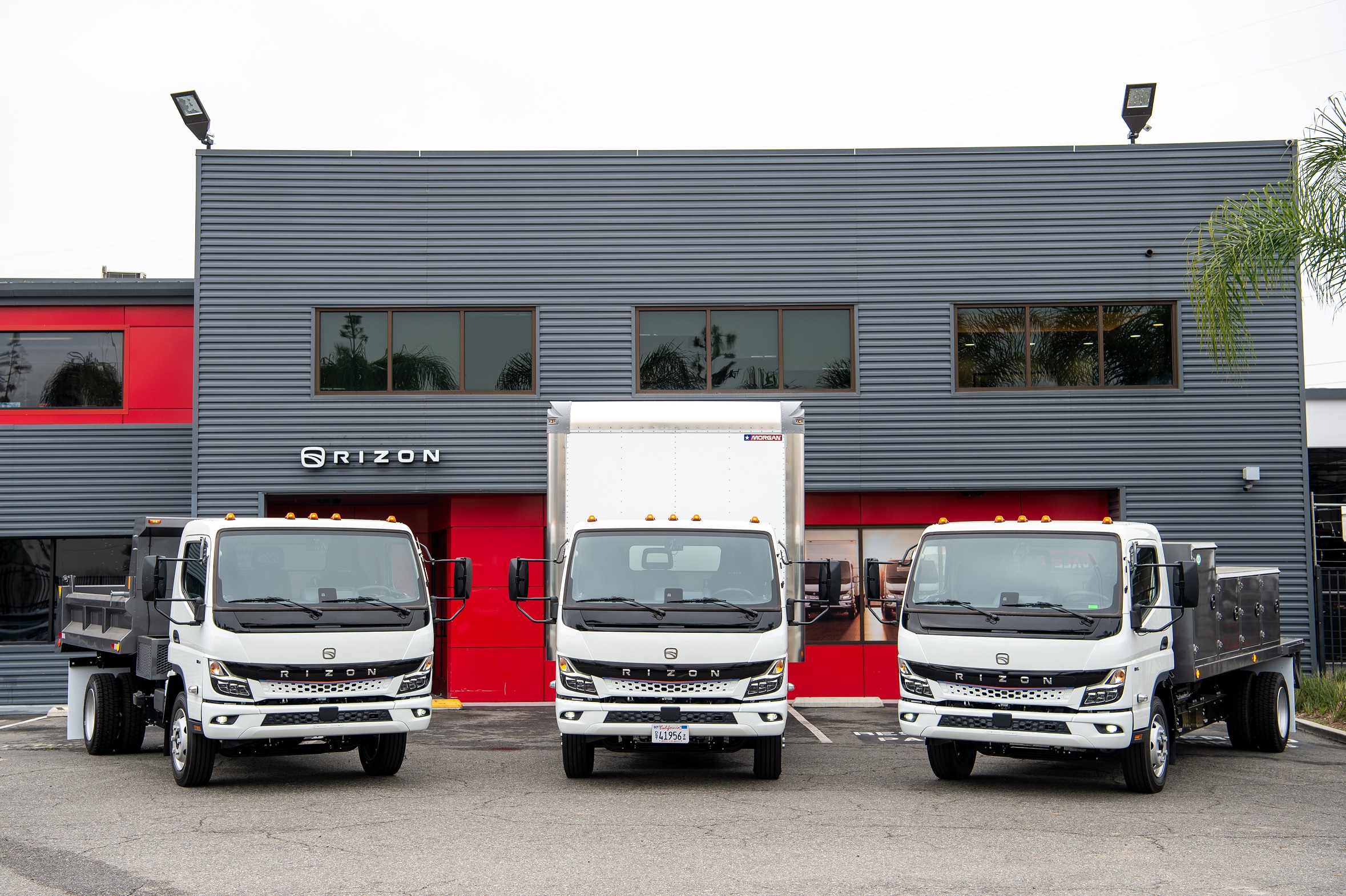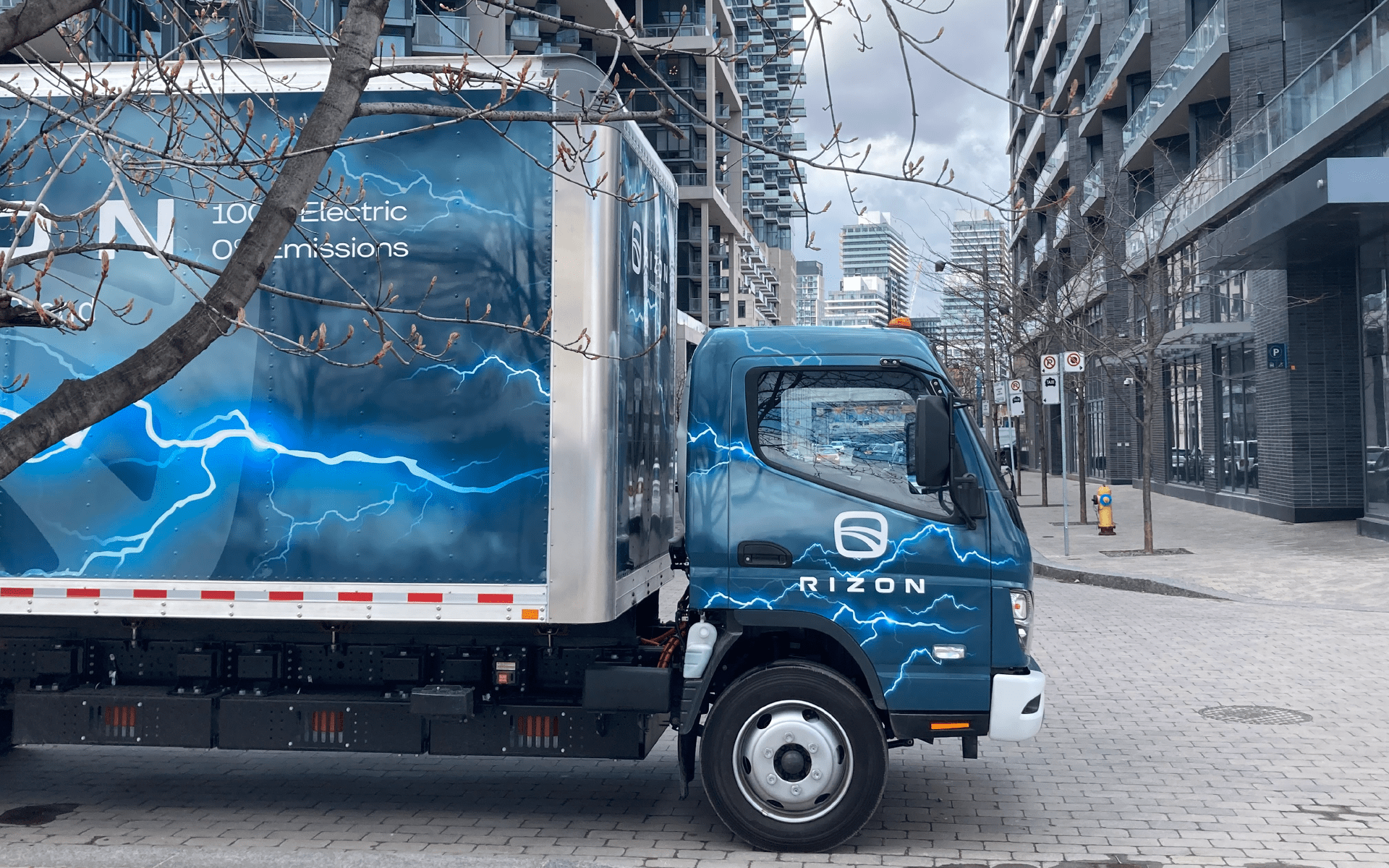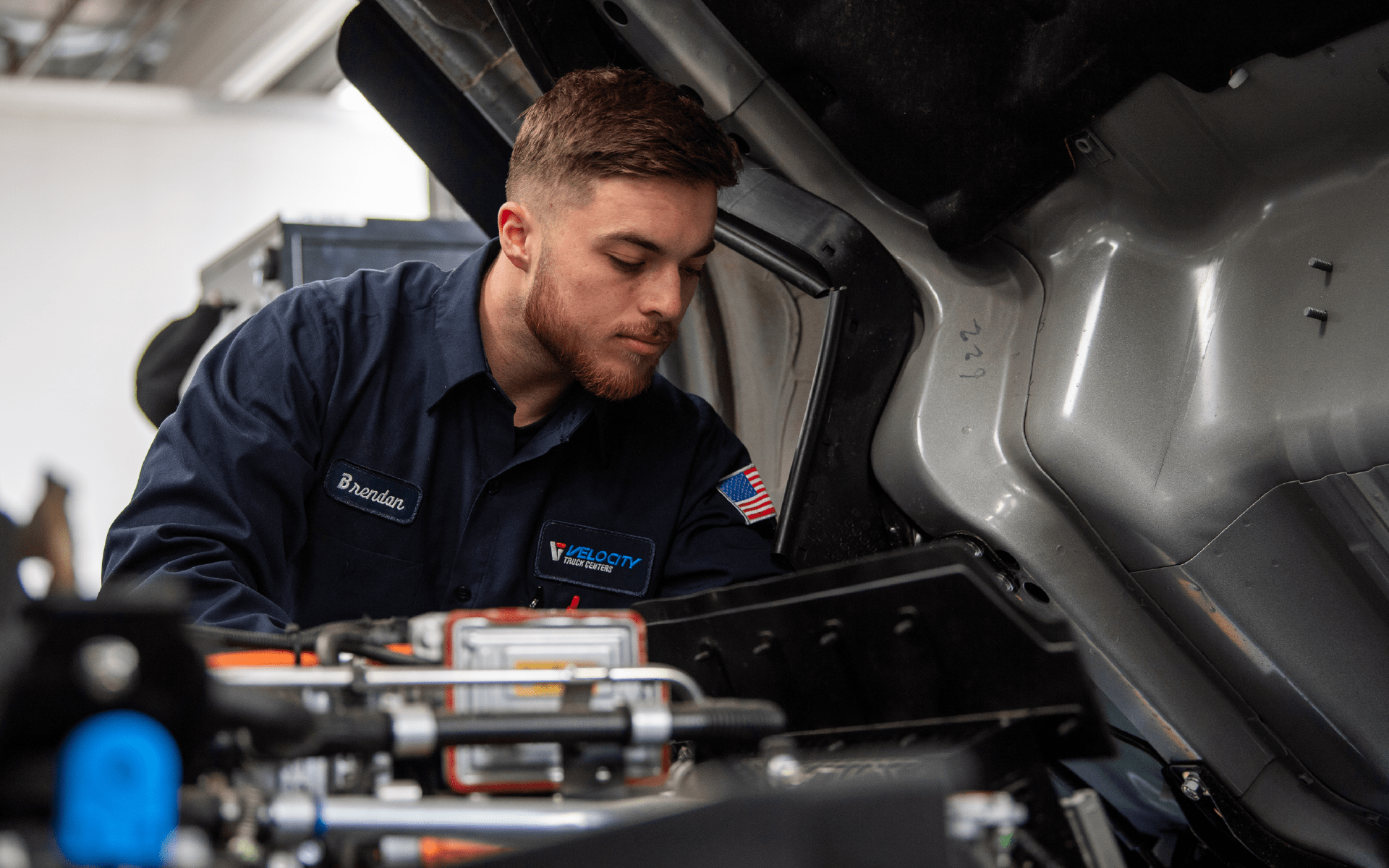Table of Contents
1. What Are Electric Vehicle Trucks?
2. Types of EV Trucks: From Pickup to Class 5
3. Why Commercial EV Trucks Matter
4. Top Benefits of Commercial EV Trucks
5. How Fleet Electrification is Shaping the Future
6. Getting Started with Class 4–5 EV Trucks
7. RIZON: A Strong Solution in the Commercial Space
8. FAQs About Electric Vehicle Trucks
9. Final Insights
What Are Electric Vehicle Trucks?

The term electric vehicle trucks broadly refers to any truck powered by electric propulsion instead of internal combustion engines. This includes everything from consumer-grade pickups to commercial battery electric vehicles (BEVs) designed for business use.
Electric trucks leverage large battery packs, electric motors, and advanced controls to offer clean, quiet, and efficient transportation. As battery technology improves and charging infrastructure grows, electric vehicle trucks are becoming a viable alternative for both personal use and commercial operations.
Types of EV Trucks: From Pickup to Class 5

Electric vehicle trucks come in several categories:
● Consumer Pickup EVs (Class 1–3): Designed for everyday drivers who want a powerful, eco-friendly truck for personal or light work use.
● Light- to Medium-Duty Commercial EVs (Class 4–5): These battery electric vehicles are built for businesses, serving as delivery vans, utility trucks, or refrigerated units.
● Heavy-Duty Commercial Electric Trucks (Class 6+): Designed for logistics, freight hauling, and specialized applications requiring higher payloads and longer ranges.
Our focus here is on Class 4 and 5 electric commercial trucks, which are proving to be a practical and impactful segment for business and municipal fleet electrification. These trucks are the perfect blend of size, power, and range for urban and regional deliveries and are operating on your streets for businesses and municipalities.
Why Commercial EV Trucks Matter

Commercial electric trucks represent a critical frontier in the shift to zero-emission transportation. While consumer electric pickups often make the headlines, commercial BEVs have a great potential to reduce emissions, lower noise pollution, and cut operating costs at scale.
Key reasons commercial EV trucks matter:
● Scale of impact: Fleets operate dozens or hundreds of trucks, multiplying environmental benefits and fuel savings exponentially.
● Predictable daily routes: Most commercial EV trucks operate on fixed routes within limited ranges (often under 100 miles), ideal for electric vehicle range and charging capabilities.
● Emissions reductions: Electrifying fleets meaningfully reduces NOx, particulate matter, and CO2.
● Regulatory momentum: Some jurisdictions have zero-emission vehicle (ZEV) mandates, clean air zones, and grant programs encouraging fleet electrification.
● Operational benefits: Lower noise, reduced maintenance, and smoother driving improve fleet operations and driver satisfaction.
Top Benefits of Commercial EV Trucks
1. Significant Fuel Cost Savings
Electricity can cost anywhere from 45%–75% less than diesel depending on the charge type, especially with smart charging during off-peak hours. For fleets driving thousands of miles per month, this translates to tens of thousands of dollars saved annually per truck.
2. Reduced Maintenance Expenses
Electric trucks have fewer moving parts—no engine oil changes, fewer brake replacements due to regenerative braking, and simpler drivetrains. This lowers maintenance downtime and overall repair costs, with some fleets reporting 40%+ maintenance savings.
3. Zero Tailpipe Emissions
Commercial EV trucks produce no tailpipe pollutants, improving local air quality and supporting corporate sustainability goals.
4. Compliance with Regulations & Incentives
Clean truck programs like Canada’s iMHZEV provide incentives that can reduce purchase prices significantly, improving ROI.
5. Enhanced Driver Experience
Electric drivetrains deliver instant torque, quiet operation, and less vibration, leading to improved driver comfort and reduced fatigue—critical factors in driver retention.
6. Simplified Depot Charging
Fleets operating Class 4 and 5 trucks benefit from centralized overnight charging. Installing Level 2 or DC fast chargers at fleet depots makes electrification logistics manageable and scalable.
7. Energy Security & Price Stability
Electricity prices tend to be more stable and predictable than diesel fuel prices, helping fleets manage operating budgets better.
How Fleet Electrification is Shaping the Future

Fleet electrification is no longer a futuristic concept—it’s happening now. Studies show that by 2030, electric commercial vehicles could make up more than 30% of the medium-duty truck market in North America.
Infrastructure is rapidly evolving. Major cities are investing in charging hubs and utility upgrades, while OEMs are launching commercial EV models designed specifically for the unique demands of urban logistics and service industries.
Sustainability goals are driving adoption. Many large companies have committed to transitioning to partial electric fleets by 2035 or sooner, signaling clear momentum.
Getting Started with Class 4–5 EV Trucks

For fleet operators exploring electrification, Class 4 and 5 electric trucks are a logical starting point. Here’s a simple approach:
● Analyze routes: Focus on vehicles with predictable daily mileage under 100 miles to maximize battery efficiency.
● Assess depot power: Confirm the electrical capacity and upgrade needs for overnight or opportunity charging.
● Leverage incentives: Explore local, state, and federal programs to offset acquisition costs.
● Pilot program: Deploy a small number of EV trucks to evaluate performance and total cost of ownership before scaling.
● Train drivers: Familiarize operators with EV handling and charging procedures.
Check out RIZON’s Fleet Electrification Guide for more details on where to start.
RIZON: A Strong Solution in the Commercial Space

Among commercial electric truck offerings, RIZON stands out as a practical, reliable solution for Class 4 and 5 fleets. Key features include:
● Range: Up to approximately 160 miles per charge depending on the model and ideal for urban and regional use.
● Body configurations: Dry van, reefer, utility, dump, trash compactor, and flatbed options provide flexibility for many industries.
● Charging: Supports both Level 2 AC and DC fast charging, ensuring flexible depot and en-route charging.
●Safety & support: Advanced safety features combined with an established dealer network ensure reliability and service.
RIZON trucks are already in commercial use across North America, demonstrating that commercial electric vehicles are no longer an experimental choice—they’re ready for prime time.
FAQs About Electric Vehicle Trucks
Q: Are electric vehicle trucks suitable for cold climates?
A: Yes. Models like RIZON’s include preconditioning systems designed to maintain battery performance and cabin comfort in cold temperatures typical of northern U.S. states and Canada.
Q: How long does it take to charge a commercial EV truck?
A: Using DC fast charging, many Class 4–5 trucks reach 80% charge in about an hour to an hour-and-a-half depending on the model. Overnight Level 2 charging easily replenishes batteries at fleet depots.
Q: What is the expected return on investment (ROI)?
A: While initial acquisition costs can be higher, operational savings on fuel and maintenance typically lead to a payback period of 3 years.
Q: How do electric vehicle trucks differ from traditional diesel trucks?
A: Electric trucks have zero tailpipe emissions, lower operating costs, quieter operation, and require less maintenance, but may require upfront infrastructure investment.
Q: Can all fleet operations switch to electric trucks now?
A: Fleet operators should first evaluate their fleets and identify ideal candidates for electrification. This includes those with predictable daily routes under 100 miles and depot-based operations. As technology advances, broader use cases will be possible.
For a complete list of RIZON FAQs, click here.
Final Insights

The category of electric vehicle trucks is rapidly evolving, from consumer pickups to powerful commercial electric trucks transforming fleets. Class 4 and 5 commercial EV trucks offer a compelling blend of performance, cost savings, and environmental benefits that make them the ideal choice for businesses ready to electrify.
RIZON trucks, with their proven range, versatility, and support, stand out as a leading solution for fleets in North America aiming to reduce emissions and improve operational efficiency.
➡️ Ready to electrify your fleet?

